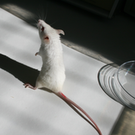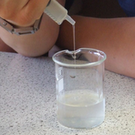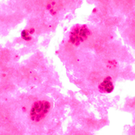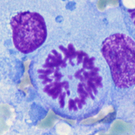Articles in the Headline Category
Headline, News »

Even though doctors sometimes skip bone marrow exams during clinical trials, a Mayo Clinic study discovered that they are crucial after experimental multiple myeloma treatments. Other standard tests for multiple myeloma patients’ responses to treatments can give false positives if used alone. The study was published in the journal Blood in late July.
Whether the study’s findings will apply to patients not in clinical trials is up for debate. However, the findings are very important to doctors doing clinical trials …
Headline, News »

Researchers have announced that in initial tests, a multiple myeloma vaccine protected some mice from developing cancer and helped those with established tumors to enter remission.
In the current study, researchers constructed an anti-myeloma vaccine by isolating proteins from myeloma tumor cells. After inoculation, the vaccine prompts antibodies to develop against myeloma proteins, which in turn causes the immune system to view myeloma cells as “foreign” and destroy them. This form of cancer treatment, known as “immunotherapy,” provides an alternative …
Headline, News »

A study published in the August issue of the Journal of Occupational and Environmental Medicine reported a high frequency of multiple myeloma cases observed among World Trade Center responders for September 11.
The six-year study observed 28,252 emergency responders for ground zero at the World Trade Center site. Researchers identified eight cases of myeloma, which was only slightly higher than the statistically expected number of seven cases. However, four of the responders diagnosed with myeloma were under the age …
Headline, News »

Anti-tumor activity in multiple myeloma after Velcade (bortezomib) treatment has been thought to result from the drug inhibiting a protein complex that regulates the immune response. Now, scientists think that Velcade works through other mechanisms.
The complex is known as NF-kappaB. When it is activated, it causes the body’s cells to respond to foreign particles and cause an immune response. Initially, Velcade has been thought to work by blocking the function of enzymes, including the complex NF-kappaB, that break …
Headline, News »

On August 2, The New York Times reported that the greatest barrier to the war on cancer is the lack of volunteers for cancer treatment studies. Although multiple myeloma was not mentioned specifically in the article, clinical trials for new drugs are significant for patients of all cancer types.
Even though considerable knowledge has emerged on the genetic origins of cancer since Richard Nixon declared war on cancer, the death rates from the disease have barely changed since his presidency …
Headline, News »

The U.S. Food and Drug Administration has approved a Phase 3 clinical trial evaluating perifosine in relapsed and refractory multiple myeloma patients. Perifosine, also known as KRX-0401, is an oral anti-cancer agent being developed by Aeterna Zentaris and licensed in the U.S., Canada, and Mexico by Keryx Biopharmaceuticals.
The trial, entitled “A Phase 3 Randomized Study to Assess the Efficacy and Safety of Perifosine Added to the Combination of Bortezomib and Dexamethasone in Multiple Myeloma Patients Previously Treated with Bortezomib,” …
Headline, News »

A recent study, published in the journal Leukemia & Lymphoma, assessed the toxicity and effectiveness of a second autologous peripheral blood stem cell transplant (APBSCT) in myeloma patients who relapsed or progressed after an initial APBSCT.
It has become increasingly more common for patients to receive a second APBSCT, either within six months of the first one without any myeloma relapse or progression between transplants – or as a salvage therapy following relapse or progression after the first transplant. This …

